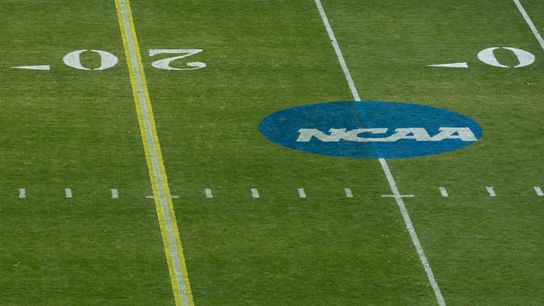The NCAA made waves last month when it announced it would explore a rule proposal that would allow transfers in good academic standing to be immediately eligible at their new school.
Commence nation-wide freakout.
We cautioned at the time that the NCAA was in its "throwing stuff against the wall" phase of the process, and that's exactly what they were doing. In an update released today, the NCAA revealed that such a rule is no longer on its legislative calendar. From the release:
The Division I Council could introduce some legislation as early as the 2017-18 cycle. The deadline for concepts to be considered this academic year is Nov. 1. Legislation addressing immediate eligibility for student-athletes who meet an academic benchmark and graduate student financial aid will not be considered in this year’s cycle.
Critics of the rule cautioned -- to put it mildly -- that such a rule would create a never-ending cycle of recruiting and free agency within college sports, and the Division I Transfer Working Group heard those concerns.
Elsewhere, however, the NCAA is moving forward with a proposal that would no longer require transferring athletes to receive approval for transfers. Presently, athletes are required to gain approval from their current school in order to receive immediate scholarship aid at their new school.
The NCAA wants to do away with that rule, and in exchange allow schools to recruit over the departing player's scholarship sooner than they can now.
The working group is still finalizing specifics, but it plans to ask the Council to introduce legislation that would establish a notification model, allowing a student to notify a school that he or she will transfer. The student could then pursue transfer opportunities and accept scholarships at other schools.
Additionally, once notification is given, the current school would have the option of not renewing athletics aid, permitting the school to offer that scholarship when recruiting a student-athlete for the next year.
Specific details are still being worked out, but the Working Group and the NCAA as a whole is moving forward as if the change is going to happen.
Additionally, the NCAA is working toward re-classifying tampering as a Level II violation, which the organization said 92 percent of ADs polled supported.
